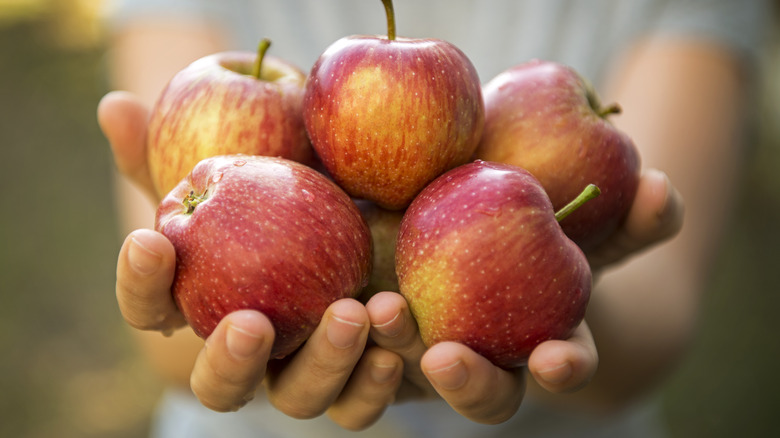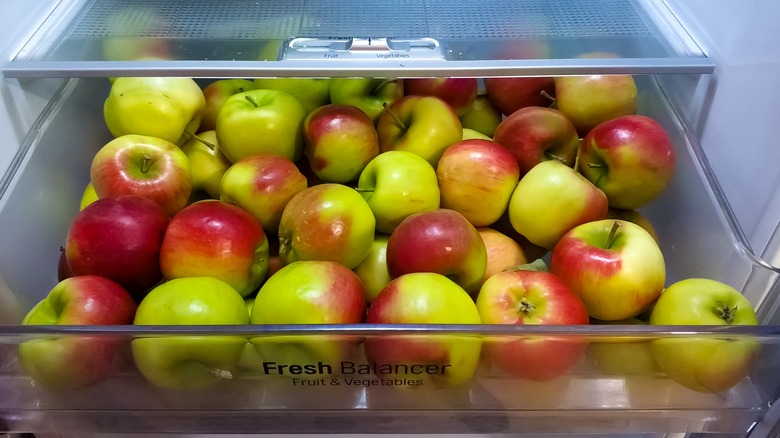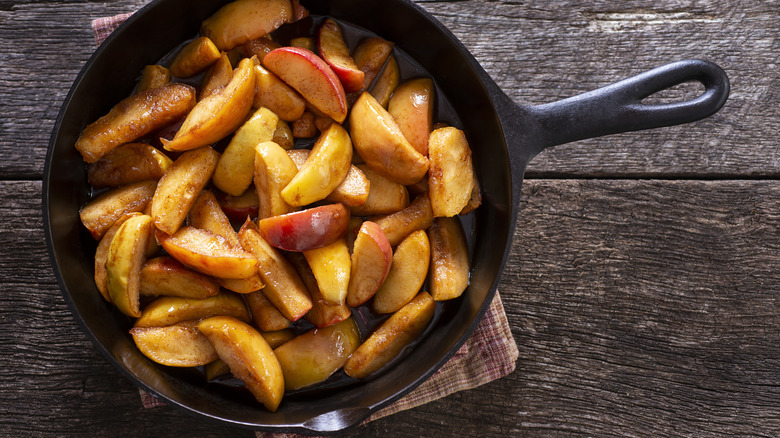The Best Place To Store Apples Isn't Your Fruit Bowl
With so many apple varieties to choose from, we're practically spoiled for choice. However, a downside to this is that apples may actually spoil before we have a chance to use them. This raises the question of the best storage method: Should apples be kept in the fridge, or do they keep best in a pretty fruit bowl on the counter? The truth is, apples can last for a while either refrigerated or at room temperature, but the length of time they keep varies, so it really depends on your usage plans, and how quickly you intend to use them.
While the Ina Garten counter bowl tip, which recommends keeping ingredients readily available and out in the open, is appealing, apples will ultimately last much longer when stored in the refrigerator. If you plan to eat them within a few days, a decorative bowl on the countertop will suffice. However, for longer-lasting freshness, crispness, and sweetness, refrigeration is the way to go.
One bad apple spoils the bunch
Exactly how long apples keep depends on several factors. On the countertop, apples at room temperature typically last one to two weeks. They prefer cooler temperatures, so a warmer room may shorten their shelf life. The ideal storage temperature varies depending on who you ask, but it generally ranges from 32 to 40 degrees Fahrenheit ... which conveniently is the range most refrigerators are set to. Apples also respond well to higher humidity, present in your fridge, whereas they can dry out quickly when left out.
The ideal place in your refrigerator for apples is the crisper drawer. There, they will be enclosed in cold air and shielded from temperature changes whenever the door is opened. If your fridge does an exceptionally good job at regulating humidity, you might want to place a damp cloth or paper towel in the crisper with the apples to maintain a moist environment — but not wet, as this can encourage mold. Apples stored in the refrigerator in this way can last from six to eight weeks or longer.
It's crucial to remove any apples with spots, blemishes, bruises, or other signs of distress from the rest, as this can easily cause rot to spread and spoil the entire batch.
You gotta keep 'em separated
Similarly, it's best to keep apples separate from other produce, whether you store them chilled or in a fruit bowl. This is because apples, along with other fruits that ripen after picking, release ethylene gas. This gas accelerates the ripening process of other fruits in close proximity, which explains why apples, bananas, and avocados kept together on the counter often shift from unripe to overly ripe very quickly. In fact, this trait can be advantageous — if you want to ripen avocados faster, place them in a paper bag with an apple or two.
If you find yourself with too many apples to use in a reasonable amount of time, they can also be frozen. However, keep in mind that freezing changes their texture, resulting in softer fruits that lose their crispness. Nonetheless, softer apples are ideal for cooked applications, such as in apple pie or cobbler, or where they will be broken down, as in applesauce, butter, or juice. You can even slice them up, add a bit of lemon juice to prevent browning, then flash freeze them. These slices won't even need thawing before being baked or blended.



